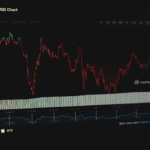
As cryptocurrency gains popularity, securely storing your assets becomes crucial to prevent theft and loss. Whether you’re a seasoned investor or new to digital currencies, following best practices for
securing your crypto is essential.
Choose the Right Wallet
The first step to secure storage is selecting the right wallet. There are various options available, but hardware wallets and cold storage are widely considered the most secure. Hardware wallets, such as Ledger and Trezor, are physical devices that store your private keys offline, protecting them from hackers. Cold storage refers to keeping your assets completely offline, a method that cryptocurrency investment consultants highly recommend for better security.
Enable Two-Factor Authentication (2FA)
For added security, always enable two-factor authentication (2FA) on any exchange or wallet that supports it. 2FA adds an extra layer of protection by requiring you to provide two forms of identification to access your account, such as a password and a one-time code sent to your mobile device. Digital asset consulting experts often recommend this practice as a key strategy for secure digital asset management.
Back Up Your Private Keys
Backing up your private keys is another critical step. Without your private keys, you won’t be able to access your crypto assets. Keep backups in secure locations, such as in a fireproof safe or on encrypted external storage devices. For long-term investment in digital assets, proper backup measures are essential to avoid irreversible losses.
Use Strong Passwords and Passphrases
Never underestimate the importance of using strong, unique passwords for your wallets and exchanges. Consider using a passphrase—a longer string of words—to enhance security further.
Be Cautious with Software Wallets
While software wallets are convenient, they are more vulnerable to hacking. If you must use them, ensure your device has updated security software and never store large amounts of cryptocurrency on an exchange.
Following these best practices will help you keep your crypto assets safe from threats. For personalized guidance on digital asset security, reach out to Kenson Investments’ digital asset specialists today.
Disclaimer: The information provided on this page is for educational and informational purposes only and should not be construed as financial advice. Cryptocurrency assets involve inherent risks, and past performance is not indicative of future results. Always conduct thorough research and consult with a qualified financial advisor before making investment decisions.
“The cryptocurrency and digital asset space is an emerging asset class that has not yet been regulated by the SEC and US Federal Government. None of the information provided by Kenson LLC should be considered financial investment advice. Please consult your Registered Financial Advisor for guidance. Kenson LLC does not offer any products regulated by the SEC, including equities, registered securities, ETFs, stocks, bonds, or equivalents.”














